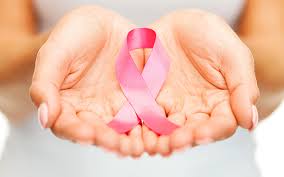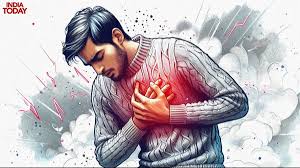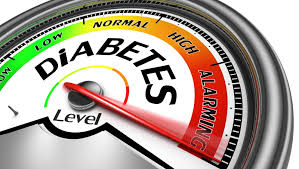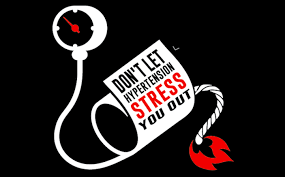SKIMS registers 4800 patients this year so far, Lung cancer on rise among men
 With cancer emerging as a major health threat across the world, Kashmir is witnessing a surge in the number of cases in the past few years with lung cancer topping the list.
With cancer emerging as a major health threat across the world, Kashmir is witnessing a surge in the number of cases in the past few years with lung cancer topping the list.According to official data available at Regional Cancer Centre, Sheri Kashmir Institute of Medical Sciences, Soura, the number of registered patients has shown an alarming surge during past few years; more than 1,700 people have died due to cancer in Kashmir. It says that since January 2014 there were 12,091 patients who were detected with cancer in various state hospitals. In 2013, 6,300 patients were detected with the killer disease. In 2016 till now, 4800 cancer patients have been registered at SKIMS.
The data revealed that the number of registered patients has jumped from 2097 in 2007 to 4800 in 2016 which is expected to go much higher. The Centre witnesses a heavy rush with nearly 40,000 older cases that doctors call follow-ups, visiting it for various kinds of therapies. The data available with the SKIMS Centre reveals that cancer patients registered for 2007 were 2,097, in 2008 the number was 2,465, and in 2009, it was 2,968. However the patient influx recorded a sharp decline in 2010 at 2,623 only but in 2011 it went up again to 3,057. Even as cancer cases in far flung areas go unreported, the 2010 decline has been attributed to the unrest in valley that year. Official data stated that there were 144 deaths due to prostate cancer in Jammu and Kashmir during 2011 and the number surged to 154 in 2012, 164 in 2013 and 174 in 2014. The rise in the number of cancer cases could be attributed to larger number of ageing population, unhealthy life styles, and use of various forms of tobacco and related products, unhealthy diet and in most cases, the non-availability of better diagnostic facilities.
According to experts, the top 10 cancers afflicting the Valley are Lung cancer, Esophagus (cancer of food pipe), Stomach, Colon (large intestine cancers), Breast, Brain, Non-Hodgkin’s Lymphoma, Gastro Oesophageal, Junction cancer (cancer between the stomach and food pipe), Ovary and Skin cancers.
Leading oncologist and Director, Regional Cancer Centre, SKIMS, Dr Muhammad Maqbool Lone told KP that the situation in Kashmir was becoming alarming every day a with the highest number of lung cancers In the country found in the people of Kashmir.
“Situation is changing as far as the deadly disease cancer is concerned. The diseases are alarmingly on surge. There are patients hailing from every part of Kashmir including the far flung areas which are diagnosed with such a terminal disease,” Dr Lone told KP. He said that the lung cancer, which for few years back was not witnessed in that alarming number, has surpassed the oesophagus cancers across Kashmir valley.
Expressing serious concern, experts said the cancer mortality rate among Kashmiris had increased due to some leading behavioural and dietary risks, including high body mass index, low fruit and vegetable intake, lack of physical activity, tobacco use and lack of regular check-up. They claimed the changing life style and food habits among the Valleyites had caused surge in all the cancers especially in Esophagus, Colon and Breast cancers.
“Yes, there is an alarming increase in cancers in Kashmir,” director, RCC, and head Department of Radiation Oncology, Dr Muhammad Maqbool Lone, told KP. The Centre maintains records of patients. He said the patients had been coming from all parts of the state, including Ladakh, Doda, Kishtwar, Bhaderwah and even from Jammu.
“We receive peculiar type of cases relatively different from those in rest of India because of geographic, socio-economic and religious factors. Tobacco use is the leading cancer risk factor at the global level causing 71 per cent of lung cancer death. In Kashmir, the situation is very grim with the highest number of lung cancer cases, which is increasing alarmingly.”
However, Dr Lone said, Islam provided for some inherent practices which go a long way in minimizing chances of cancer. He made a particular mention of circumcision and the ablution ahead of mandatory prayers, something which has been acknowledged at the global level through scientific research.
Pertinently cancer is a generic term for a large group of diseases that can affect any part of the body. Other terms used are malignant tumours and neoplasm. One defining feature of cancer is the rapid creation of abnormal cells that grow beyond their usual boundaries, which invade adjoining parts of the body and spread to other organs. This process is referred to as metastasis, a major cause of cancer death.
The experts attributed the rise in cancer cases to intake of spicy food, changing dietary habits and consumption of bulk of contaminated food items available in the market.
“There is massive adulteration in mass consumption food items which kills people slowly. We have seen an increasing number of patients complaining of food poisoning, gastric troubles and other problems. Any delay in detection of the cancer can prove fatal,” SKIMS director and noted gastroenterologist, Dr Showkat Ahmad Zargar said. “Lung, stomach, liver, colon and breast cancer cause most cancer deaths every year in the world. The situation in Kashmir is no different,” Dr Zargar said.
The experts said that early check-ups and adoption of preventive strategies can reduce the risk. Acquisition of knowledge about its causes and intervention to prevent and manage the disease is the need of the hour. Evidence-based strategies for cancer prevention and early detection and management of the disease can go a long way in reducing the incidence of the dreaded disease.
“Many cancers have a high chance of cure if detected early and treated adequately,” said leading oncologist and head Radiation and Oncology Centre, SMHS, Dr Sanaullah Kuchay, adding that cancer deaths could be prevented by modifying or avoiding key risk factors, including tobacco use, obesity, unhealthy diet with low fruit and vegetable intake, lack of physical activity alcohol use, sexually-transmitted HIV-infection, urban air pollution and indoor smoke from household use of solid fuels. “Vaccinate against human papilloma virus (HPV) and hepatitis B virus (HBV), reduce exposure to sunlight, early detection. Cancer mortality can be reduced if cases are detected and treated early,” he said.
Doctors Association Kashmir recently demanded complete ban on import, manufacturing, transportation and sale of all forms of tobacco in Kashmir
“These things can make this disease more fatal in Kashmir. Whenever a patient develops any symptom, he should immediately report to the hospital,” Dr Nissar Ul Hassan, President, Doctors Association Kashmir.
“J&K is emerging as the smoking capital of north India and cigarette smoking is almost double the nation wide prevalence of 5.7 per cent J&K has 12 per cent cigarette smokers, 3.8 per cent bidi smokers and 8 per cent smokeless (chewable) tobacco users. Tobacco is a risk for heart attacks, strokes, COPD, cancers, hypertension and peripheral vascular disease,” he said, adding “The rise of cancers in Kashmir from 1448 cases in 2009 to 1768 cases in 2014 has been due to high rates of smoking in children and young adults. According to a study conducted at SKIMS smoking related cancers like lung cancers have high incidence in the valley. International agency for research on cancers concluded in 2014, that involuntary smoking is carcinogenic to humans.”
However, according to experts, a massive awareness campaign is needed for early detection of symptoms (for cancer types such as cervical, breast colorectal and oral) to get them diagnosed and treated early before the disease enters an advanced stage. They alleged early diagnosis programs were particularly relevant in low-resource settings where majority of patients were diagnosed very late.
“Screening and cancer detection camps are seldom organized in far off areas. Research is the worst hit; doctors don’t get time while the authorities never emphasizeits need and, in the process, quality patient-care gets affected,” said a senior professor of Oncology at SKIMS, wishing anonymity. He accused the directorate of Health Services of virtually doing nothing to create awareness about cancer among the people or to provide for some preliminary diagnostic facilities at various healthcare institutions.
As per reports, cancer cases have shot up across India with 11.18 lakh people suffering from the disease in 2014 as compared to 10.28 lakh in 2011 – a rise of 9 per cent in the last four year. Surveys have shown that breast cancer has upstaged cervical cancer as the most common and biggest killer of women, whereas lung and oral cancer are the most common types of cancers among men.
Pertinently World Cancer Day, organized by the Union for International Cancer Control (UICC) and celebrated each year on 4 February, is an opportunity to rally the international community to end the injustice of preventable suffering from cancer.
The theme of World Cancer Day 2016 is “We can, I can” and highlights the need for multisectoral participation. WHO has provided guidance on how to address the global cancer burden through comprehensive cancer control, founded on global coordination and strong health systems.





